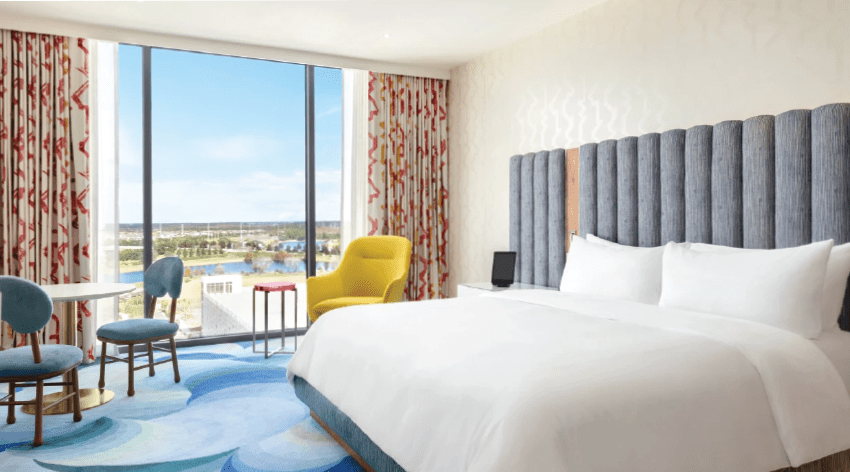Go easy on the coffee and double down on optimized sleep for a better convention experience
Oh! The rush of heading off to an event! Packing your threads-to-impress, gathering up the unruly skein of chargers for all your devices, tapping your way through pre-flight check-in, and, of course, remembering to pack your toothbrush. But what about everything that gets left behind?
Whether you’re a meeting professional or attendee, travel may require sacrificing elements of everyday life that make you healthy and happy, such as your ergonomic pillow or specialized mattress for proper spinal support, ensuring that you get enough sleep to kill-it the following day on the tradeshow floor. The following tips could help you sleep easier on the road and come back successful.
Avoiding the Dreaded Coffee-induced Slump
First, the bad news. Coffee, along with the litany of brightly colored tall cans of extreme energy drinks, is not the silver bullet to plow through that midday slump we’d like to believe it to be. “On the one hand, caffeine certainly does give us energy. It helps to block the way that our brain processes our tiredness,” says Jen Scheinman, a registered dietician nutritionist and nutrition affairs manager for Timeline Nutrition, a Swiss cellular health products company, but in reality, it only serves as a “false band-aid approach to energy.”
Read More: Sleeping Through the Holidaze
“What happens at these types of events, is that we end up sipping on caffeine and coffee all day long because it’s there and you take breaks at coffee stations or cafes,” she says. But ultimately, that behavior will only lead to a caffeine crash. “We’re getting super energetic from having caffeine, but what starts to happen is that we build a tolerance to caffeine,” she says. That often leads to the consuming of caffeine later in the day and can result in a disruption of healthy sleep patterns because it takes longer than you might expect for the body to process and eliminate the caffeine.
“We need to get back to focusing on good nutrition and things that can really energize you on a cellular level, as opposed to relying on things like caffeine or sugar for instant energy,” Scheinman says.
“We need to get back to focusing on good nutrition and things that can really energize you on a cellular level, as opposed to relying on things like caffeine or sugar for instant energy.”
– Jen Scheinman, Timeline Nutrition
Science-based Slumber
Even if you managed to muscle through without the afternoon coffee, you may still have struggled to get a good night’s rest for a wide range of reasons. It might be time to analyze exactly what is going on when the lights go out.
Luke Kelly, CEO of Bryte mattress company, recently launched a partnership with Lake Nona Wave Hotel in Orlando to supply the resort with restorative sleep solutions featured in the resort’s Well+ech By Wave rooms. These “smart” rooms feature optimized mattresses, bed linens, specialized glass used in the windows and Toto toilets. “Not only do our guests get to have the best night’s sleep, but they can take the learnings from their sleep analysis home with them,” says James Tattersall, director of sales and marketing with Lake Nona Wave Hotel.
Kelly echoed the messaging championed by the National Sleep Foundation on the significance of a good night’s sleep. “Sleep is the foundation of health, and the stark reality is that the state of most Americans sleep health is not good,” he says.
Read More: Team Building and Well-being
To advance better sleep and promote restorative sleep, Bryte funded a new study to illustrate this point. More than 7 out of 10 Americans do not achieve restorative sleep. “In order to solve for restorative sleep, we must understand the science behind it,” he says.
The best mattresses include “rebalancing technology” to remove pressure imbalances by way of intelligent cushions that can sense spikes in pressure and eliminate them before they can disturb a user’s sleep.
Instead of an alarm clock that jolts you out of bed with your heart beating out of your chest Kelly advocates for a Silent Awake Assist system that eases users from their slumber using gentle, rhythmic motions to gradually wake the individual. “Every night’s sleep should be restorative,” he say.
This article appears in the March/April 2023 issue. You can subscribe to the magazine here.




